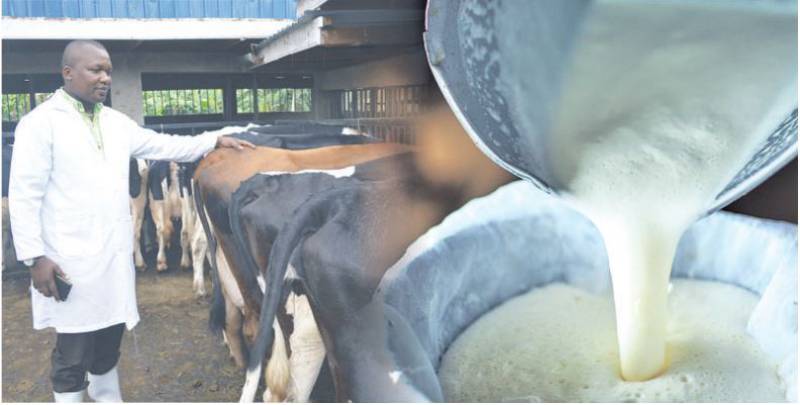
A farmer in Kirinyaga County has cut his stock of dairy cows worth an estimated Sh13 million, down to Sh7 million to reduce the high cost of maintaining the herd. This comes at the time when the cost of milk sold to processors has reduced to an average of Sh21 per litre, which is below the production cost.
Nyaga Muriuki, the farmer from Gatugura in Gichugu constituency, in Kirinyaga said the production costs, especially price of livestock feed has continued to go up, yet milk prices only rise to a certain level before dropping. He termed the current slump as unprecedented.